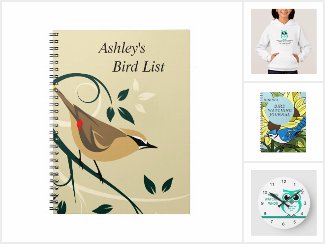Winter Bird Watching In Southern Ontario
If you live by the northern shores of Lake Ontario and you keep on the look out you may be surprised at the variety of bird species that call Southern Ontario their winter home. One of the most common winter birds that you are sure to see in your yard whether rural or suburban, is the Dark eyed Junco. It's arrival just in time for winter has earned it the nickname "snowbird".
At first glance you may think it is a sparrow and you would be right, Juncos belong to the sparrow family, they are around the same size and have the same body shape you find in sparrows, but on closer inspection you will see that the Junco's appearance is quite distinctive from what you see in sparrows. The Dark eyed Junco has a pinkish beak, it's upper body, head and breast are gray with a white belly. And their white outer tail feathers make them unmistakable when in flight.
Juncos begin their arrival to southern Ontario in the fall and leave for cooler places up north at the approach of warmer weather during the spring for the start of breeding season. During the winter they are often found in flocks, so if you see one Junco chances are there are quite a few more close by. The place you are mostly likely to spot them is on the ground foraging for food.
Juncos are known to visit bird feeders looking for any fallen seeds below. They enjoy a variety of seeds including the ever popular black oil sunflower seeds but they especially like millet seeds. When at their summer home way up north, a large portion of their diet consists of insects.
The Junco is a songbird, but it is only the folks living in areas juncos migrate to during the summer who get to hear their pretty songs, we here in southern Ontario have to be content watching them going about their business in the silence of winter.
Did You Know?
The word "junco" comes from a Spanish word meaning "reed" or "rush"( as in the plant)
Juncos are found only in North America and have a lifespan of around 11 years.Because of their gray color often times dark eye Juncos are referred to as slate colored Juncos

